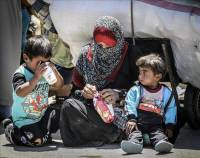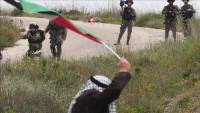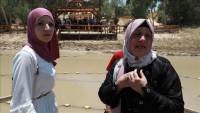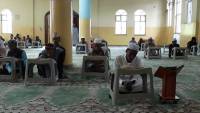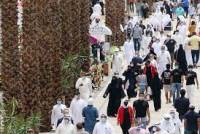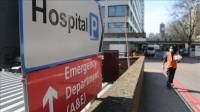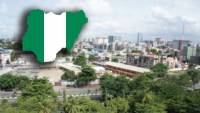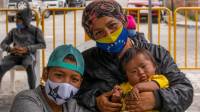One in 100 deaths worldwide is by suicide, and while the overall rate is falling, it is rising in the Americas, the World Health Organization said Thursday.
Suicide remains one of the leading causes of death worldwide, according to a report published Thursday titled "Suicide worldwide in 2019," with data before the COVID-19 pandemic, said the global health body, which wants to combat the trend.
"Every year, more people die as a result of suicide than HIV, malaria or breast cancer - or war and homicide," said the WHO.
In 2019, the latest figures available, more than 700,000 people died by suicide – one in every 100 deaths – prompting the WHO to produce new guidance to help countries improve suicide prevention and care.
"We cannot – and must not – ignore suicide," said Tedros Ghebreyesus, the WHO director-general.
"Our attention to suicide prevention is even more important now, after many months living with the COVID-19 pandemic, with many of the risk factors for suicide – job loss, financial stress and social isolation – still very much present."
Male suicide rate double that of females
More than twice as many males die due to suicide as females – 12.6 per 100,000 males compared with 5.4 per 100,000 females.
Suicide rates among men are generally higher in high-income countries – 16.5 per 100,000 males.
For females, the highest suicide rates are found in lower-middle-income countries – 7.1 per 100,000.
Tedros said the WHO's new guidance provides a clear path for stepping up suicide prevention efforts.
Among young people aged 15-29, suicide was the fourth leading cause of death after road injury, tuberculosis and interpersonal violence.
Suicide rates in the WHO African (11.2 per 100,000), European (10.5 per 100,000), and South-East Asia (10.2 per 100,000) regions were higher than the global average (9.0 per 100,000) in 2019.
The lowest suicide rate was in the Eastern Mediterranean region (6.4 per 100,000).
Globally, the suicide rate is decreasing, while in the Americas, it is going up.
Suicide rates fell in the 20 years between 2000 and 2019, with the global rate decreasing by 36%.
Decreases ranged from 17% in the Eastern Mediterranean region to 47% in the European region and 49% in the Western Pacific.
"But in the Americas region, rates increased by 17% in the same period," said the WHO.
The global health body released a comprehensive guidance for combatting suicide that includes limiting access to the means of suicide, such as highly hazardous pesticides and firearms, and educating the media on responsible reporting of suicide.
It also recommends fostering socio-emotional life skills in adolescents and early identification, assessment, management, and follow-up of anyone affected by suicidal thoughts and behavior.
The WHO said banning the most dangerous pesticides is a high-impact intervention.
"Given that pesticide poisoning is estimated to cause 20% of all suicides, and national bans of acutely toxic, highly hazardous pesticides have shown to be cost-effective, such bans are recommended by WHO."
Other measures include restricting access to firearms, reducing the size of medication packages, and installing barriers at jump sites, said the WHO./aa
Canada holds refugees in abusive conditions: Report
June 18, 2021Two human rights groups have condemned Canada's treatment of asylum seekers in a scathing report released Thursday that says thousands are held in jails, sometimes for years.
It is in direct contrast to the image Canada likes to project on the world stage, said the report, co-authored by Human Rights Watch and Amnesty International.
“Canada’s abusive immigration detention system is in stark contrast to the rich diversity and the values of equality and justice that Canada is known for globally,” said Ketty Nivyabandi, head of Amnesty International Canada. “Amnesty International and Human Rights Watch call on the Canadian authorities to end the inhumane treatment of people in the immigration and refugee protection system by gradually ending immigration detention in Canada.”
The 100-page report, 'I Didn't Feel Like a Human in There: Immigration Detention in Canada and Its Impact on Mental Health,' gives Canada a black eye, noting that those fleeing persecution while looking to Canada for protection are treated shabbily and abused.
They are regularly subjected to being handcuffed and held in jails mixed with regular criminal inmates or held in solitary confinement. The treatment has detrimental effects on mental health, the report found.
The report is based on interviews with 90 former immigration detainees and their relatives, as well as mental health experts, lawyers and government officials, among others.
Between April 2019 and March 2020, the human rights groups found that "Canada locked up 8,825 people between the ages of 15 and 83, including 1,932 in provincial jails." They said that since 2016, Canada has held 300 immigration detainees for longer than one year.
“Canada prides itself on welcoming refugees and newcomers with open arms, even though it’s one of the few countries in the global north where people seeking safety risk being locked up indefinitely,” said Samer Muscati, associate disability rights director at Human Rights Watch.
The Canadian Border Services Agency (CBSA) said on its website that there are good reasons why some are held in detention. They may have criminal convictions and pose a danger to the public, CTV News reported on Thursday.
There has not yet been a response from the Canadian government./aa
“Israeli” police officer accused of 'reckless homicide' in killing of autistic Palestinian
June 18, 2021An “Israeli” police investigation unit on Thursday indicted a police officer for "reckless homicide" in the murder of Iyad el-Hallaq, an autistic Palestinian, killed in May 2020 in occupied East Jerusalem.
The “Israeli” official Broadcasting Corporation network said the police misconduct investigation unit filed an indictment against an officer who killed el-Hallaq under a reckless homicide accusation.
Iyad el-Hallaq, 32, was on his way to school when he was chased by “Israeli” forces who opened fire at him from close range.
A police officer followed him, who tried to escape to a garbage bin, and again shot el-Hallaq who posed no threat.
The el-Hallaq family said he was holding a card that indicates he was a person with special needs.
The murder sparked protests by the Palestinians and was also condemned by the UN./aa
Palestinian woman reunited with family after 24 years
June 18, 2021A Palestinian woman unable to travel abroad due to “Israel's” refusal to issue her an ID card has been reunited with her family who lives in Jordan for the first time in 24 years.
Sena Mohammed met her family on the opposite shores of the Jordan River, located between Jordan and the occupied West Bank. She waved from afar without getting an opportunity to hug them.
“Israeli” authorities have not allowed Mohammed, who began living in the occupied West Bank after her marriage, to visit her family in Jordan on the pretext that she does not have an identity card.
Mohammed is one of 50,000 Palestinians that Israel does not permit an identity card, preventing family reunifications.
Meanwhile, Jordanians of Palestinian descent must obtain special and expensive permits from Israeli authorities if they wish to visit occupied Palestinian territories.
Mohammed was on the west bank of the Jordan River, while her family was on the east bank.
She could not hug her family although they were just meters apart.
The meeting lasted less than an hour and was under surveillance of soldiers on both sides of the river.
“I haven't seen my family for 24 years. My crime is marrying someone from the West Bank. I don't have an identity,” Mohammed told Anadolu Agency. “Living without an identity means you are not human, you are nothing.”
She urged Palestinian and Jordanian authorities to help her acquire an identity card.
“I don't want to lose any of my family members before meeting with them. It was very painful for me to lose my parents before I could say goodbye to them,” she said.
The “Israeli” administration does not recognize marriages between those living in occupied Palestinian territories and Palestinians residing abroad or foreign citizens for “family reunification.”
And it does not give identity cards to their spouses./aa
Islamic education thrives, expands faith in Ethiopia
June 18, 2021ADDIS ABABA, Ethiopia
Classes were once held in the open air, under a tree, or in a small room of an Ethiopian traditional building constructed of wood and mud with crumbling walls, leaking roofs, and pupils sitting in circles around their graceful teachers, said an Islamic seminary teacher, explaining how the madrassah began in the Horn of Africa nation.
The students then begin reading, reciting, and memorizing the major sources of Islam -- the Quran, Hadith, and other religious texts -- loudly and enthusiastically, Sheik Ahmed Awol, a respected educator at Saidna Hamzaa, Quranic school in Addis Ababa, Ethiopia, added.
"This is how Islamic education began in Ethiopia and has continued to improve," he explained.
Islamic education in Ethiopia dates back to the 7th century, when the companions and relatives of the Muslim Prophet Mohammed who were persecuted in the city of Mecca in present-day Saudi Arabia by pagans sought refuge in Nejashi, he said.
The first Islamic settlement in what is today Ethiopia is located in the town of Wukro in the northern Tigray region, some 800 kilometers (500 miles) from the capital. The refugees who were welcomed by the then-king of the land and its people had built the Al-Nejashi mosque, one of the world's oldest Muslim places of worship.
"Islamic education in our country is as old as our faith, and the Al-Nejashi mosque served as the first center of Quranic School," Awol noted, adding: "Ever since (then), schools supported by the community proliferated in rural and urban Ethiopia."
Model school
On a bright morning centuries later, Abdul Razak Ali and others like him were engrossed in reading the traditional Arabic Quran inside the well-built, carpeted, and pristine Sadina Hamzaa mosque. Others had encircled their teacher, Awol who was leading the learning from the Amharic version of the Quran. Dozens of girls were also attending a separate class.
Abdul Geni Kedir, the school's headmaster, told Anadolu Agency that the school had built a well-structured nationwide publicly funded educational system.
"We have nine boarding schools in the capital and 15 in other regions and we plan to open more," Kedir said, adding: "For Muslim students who follow regular secular education, we've established 70 after-school educational centers in the capital and all 10 regions."
The boarding schools receive students from every corner of Ethiopia, and most of them have graduated in different fields from different universities of the country, Kedir added.
Elite Imams and community leaders
Anwar Ahmed, a teacher, said the school offers a rigorous teaching methodology that involves examinations and various types of tests at different levels.
"Students are required to complete the first level of learning of Holy Quran and Hadith in two to three years," Ahmed noted.
"Those who pass the exam will be transferred to the second level of education in another branch, which often takes five years. We run a model college-type school."
According to Awol, the most valued aspect of education is morality, which "is the foundation of Islam."
"We teach our students morality of religious integrity, peace, and understanding which will govern their behavior and character in society," he said. "This contributes to sustaining our age-old harmonious interfaith relations."
Abdul Razak Ali, 17, is in the first level of his Islamic schooling. He said he is building a "mature Islamic personality" which will help him as a vital member of the community.
"I want to finish the course and become a preacher or a teacher in a rural Islamic school," he added.
Kedir remarked: "We have been producing elite Muslims over the last 12 years and many of them are serving as respected Imams (prayer leaders) of mosques and community leaders in different parts of Ethiopia."
Growing influence
The predominantly Sunni Ethiopian Muslim population has grown in number and constitutes an estimated 40% of the 112-million-population of the Christian-majority Horn of Africa country. Ethiopian Muslims and Christians of various denominations have coexisted peacefully for generations.
However, over the last three years, violence has broken out between the followers of the two major faiths in parts of the country. Religious leaders and government officials blame political forces for instigating the conflicts.
In addition to Sadina Hamzaa School, there are 218 officially recognized Quran schools in Ethiopia, according to the Ethiopian Islamic Affairs Supreme Council.
Kedir pointed out that the expansion of the schools, which have been "significantly contributing to the spread of the faith," reflected the steady increase of the community's influence in Ethiopian society.
"Islamic education has been reinforced by the burgeoning Islamic media and related public activities," he noted. "Now, we have private newspapers, television stations, educational videos, and there is an increase in the production of multilingual traditional and modern Islamic hymns," he added.
Helping hands
As students left class for a break, they quietly swarmed to the nearby compound of the mosque, which appears as an oasis of serenity amidst the bustling metropolis of an estimated 5 million population.
Donning Islamic clothing, Awol gazed at the compound from the mosque's entrance and said: "We're doing what is required of us and what we can. Global Muslims and institutions must work together to modernize and sustain our current educational system."
Turkish charities in Ethiopia have helped Muslim communities in many different ways. The Diyanet Foundation (TDV) of Turkey has been distributing the Amharic version of the Quran to schools and mosques, as well as funding further printing in collaboration with Addis Ababa University.
The Turkish Cooperation and Coordination Agency (TIKA), Ankara's state-run aid agency, completed the restoration of the historical Al-Nejashi Mosque in 2018./aa
The Austrian Embassy confirmed that the ban on the entry of travelers from Kuwait to Austria remains in effect until June 30, indicating there might be changes at the beginning of July if there are updates in the directives of the Austrian government, reports Al-Qabas daily. In a special statement to the daily, the embassy disclosed there are exceptions during this period for the entry of some categories as follows: emergency medical cases with only one companion provided they present a certificate from the hospital or physician in Austria that they have an appointment, travel for the purpose of study or research, academic or continuing education, Kuwaiti diplomats, and those with important business.
The embassy called on travelers under these categories to bring their certificate of vaccination, proving that they have completed the two doses of globally approved vaccines. Those under these categories who recovered from corona must present a certificate proving that six months have passed since they recovered from the infection; in addition to negative PCR test result or an antibody test valid for three months. Those who have been vaccinated or who have recovered from corona are no longer required to undergo quarantine, but those who have just been tested must self-isolate which will end once their PCR test comes out negative on the fifth day after entry (the day of entry counts as ‘day zero’). It is necessary for all persons wishing to enter the country to complete an online registration form (pre-travel clearance) before each entry into Austria. This can be filled in 72 hours before entry at the earliest.
The recent statistics of the Central Bank of Kuwait (CBK) shows an increase in the remittances of expatriates in 2020, which reached KD5.3 billion — about 14.5 percent higher than in 2019 when remittances totaled KD4.62 billion, reports Al- Anba daily. In 2020, there was a sharp decline in spending due to the corona pandemic; while remittances in the third and fourth quarters increased remarkably. According to data, remittances in the first quarter reached KD1.35 billion, KD1.05 billion in the second quarter, KD1.4 billion in the third quarter and KD1.47 billion in the fourth quarter.
Repercussions
Expatriates sent more money to their home countries in spite of the repercussions of the pandemic; such as the loss of jobs for thousands of expatriates and reduction of salaries for some, leading to lower remittances in the first and second quarters. In the third and fourth quarters, many expatriates sent their families back to their home countries; hence, they started transferring a bulk of their income to their families. Thousands of expatriates also left Kuwait permanently, so they transferred their savings to their home countries as Kuwait does not offer any investment opportunity for expatriates. Curfews and closure of restaurants could also be the reasons for lower spending among expatriates, prompting them to remit their money to their home countries. In addition, they did not travel during the summer break last year./agencies
UK records highest number of COVID cases since February
June 17, 2021The UK registered more than 9,000 cases of COVID-19 on Wednesday, its highest total since February.
Government data showed the UK recorded 9,055 new infections, the highest figure since Feb. 25, when 9,985 cases were reported.
Wednesday’s figure brings the country’s total number of cases since the start of the pandemic to over 4.5 million. There were also nine further deaths, taking the death toll to 127,926.
Over 42 million people have received their first dose of vaccine and over 30 million their second dose.
By the end of this week, all those over 18 will be able to book their vaccination appointments.
Also on Wednesday, lawmakers voted to extend current coronavirus lockdown restrictions until July 19 after the prime minister announced Monday that the earlier proposed date of June 21 had to be pushed back four weeks due to rising cases of the Delta variant.
After a debate in the House of Commons, MPs backed the move by 461 votes to 60.
Meanwhile, Health Secretary Matt Hancock confirmed that vaccinations for care home staff will be made mandatory and that the government is looking into doing the same for workers in the National Health Service.
Hancock dominated the news in the UK today due to Dominic Cummings, the former top adviser to Prime Minister Boris Johnson, releasing damning texts sent to him about Hancock from Johnson.
Cummings left 10 Downing Street earlier this year after falling out with Johnson and has since condemned the government’s handling of the pandemic, singling out Hancock for particularly harsh criticism.
In a marathon seven-hour session of giving evidence to a parliamentary committee on the government’s response to the COVID pandemic, Cummings told MPs last month that Hancock should have been sacked for “15 to 20 things,” including lying on multiple occasions.
The leaked messages were part of a 7,000-word blog post Cummings wrote to show how both Downing Street and Hancock apparently lied about their failures last year.
In the messages that he leaked, Cummings claimed that Johnson on Mar 26, 2020 called Hancock “totally f****** hopeless.”
Cummings then received a series of missed calls from Johnson, who wanted to tell him that he had tested positive for COVID-19.
In another message on Mar 17, 2020, Cummings reportedly told Johnson that the Department of Health had “totally f***** up ventilators” and Johnson replied to Cummings: “It’s Hancock. He has been hopeless.”
On Apr 27, 2020, Johnson allegedly messaged Cummings about potentially removing the procurement of personal protective equipment (PPE) from Hancock, writing in his message to Cummings: “On ppe it's a disaster. I can't think of anything except taking Hancock off and putting Gove on.”
Michael Gove is another minister in Johnson’s government.
When asked by reporters about the leaked messages, the prime minister’s spokesperson said today: “I am not planning to engage with every allegation put forward. The prime minister has worked very closely with the health secretary throughout and will continue to do so.”
Johnson himself turned down the opportunity to comment on the leaked messages at Prime Minister’s Questions in parliament./aa
Rising food prices in Nigeria pushed 7 million people below the poverty line in 2020 alone, according to a report by the World Bank in Nigeria.
The latest World Bank Nigeria Development Update (NDU) said that despite economic growth, prices are increasing rapidly, "severely impacting Nigerian households."
The report, titled "Resilience through Reforms,” went on to say that as of April 2021, the inflation rate was the highest in four years, adding food prices accounted for over 60% of the total increase in inflation.
On June 12, President Muhammadu Buhari said the government saved 10.5 million Nigerians from poverty in the last two years.
Buhari noted that the government provides job opportunities to farmers, artisans, women and merchants in the country./aa
Noting that Turkey hosts the most refugees of any country in the world, a UN representative said Wednesday that it should receive more support from other states in this regard.
"More support should be provided to Turkey by many other states who are not facing such a difficulty," Philippe Leclerc, the representative of the UN High Commissioner for Refugees (UNHCR) in Turkey, said during an online meeting held by the Turkish Heritage Organization on the occasion of World Refugee Day.
Designated by the UN in 2000 to honor refugees around the globe, World Refugee Day is celebrated annually on June 20 to raise awareness of the situation of refugees throughout the world.
Saying he is proud to work in Turkey, which is handling the refugee issue responsibly and seriously, Leclerc noted that Turkey provides education and access to employment to refugees under its "inclusion policy.”
In addition to financial support to Turkey, he said industrialized states should also share the responsibilities on refugees through resettlement programs which would make it possible for refugees to live in other countries.
Leclerc said the refugee issue is not a Middle East phenomenon only, as most refugees are living in middle income or low-income countries with neighboring conflicts.
"The UNHCR is supporting Turkey to implement registration, organization and access to health for Syrian refugees," he added.
Amid mounting atrocities in the civil war raging in Syria since early 2011, Turkey opened its borders to Syrians fleeing from the Bashar al-Assad regime’s brutalities.
Turkey is hosting some four million Syrian refugees./aa


